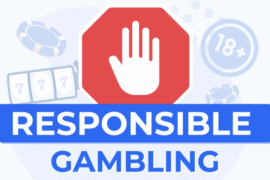This article may contain references to products or services from one or more of our advertisers or partners. We may receive compensation when you click on links to those products or services. Nonetheless, our opinions are our own.
Both federal and state regulations have stringent measures against the use, possession, and distribution of controlled substances. While federal laws classify drugs into schedules, states often align with these classifications, though there are exceptions like cannabis, which many states have decriminalized. Given the complexity of these laws and the severe consequences of violations, consulting with a Rancho Cucamonga criminal lawyer can be invaluable. Such a lawyer can provide expert guidance on the nuances of both federal and state regulations, ensuring that individuals in the Rancho Cucamonga area are well-informed and adequately represented in legal matters related to controlled substances.
- Possession of Controlled Substances
- Drug Distribution and Trafficking
- Drug Production
- Drug Paraphernalia Possession
- Seeking Legal Assistance for Drug Charges
- Understanding the Implications of Drug Convictions
- Impact on Employment
- Housing Concerns
- Educational Setbacks
- Social and Personal Implications
- Travel Restrictions
- Restorative Measures
- Conclusion
- Recommended Reads
Possession of Controlled Substances
It’s not a crime to be under the influence or addicted to drugs, as established by the U.S. Supreme Court in Robinson v. California in 1962. However, possessing illegal drugs can lead to prosecution. The charge doesn’t necessitate proof of intent or ownership. Even if you’re holding drugs for someone else, you could face legal consequences. The severity of the charge can escalate based on the quantity or if there’s evidence suggesting intent to distribute. Possession of prescription drugs without a valid prescription can also lead to charges, especially given the rising concern over prescription drug misuse.
Drug Distribution and Trafficking
Selling, trading, or distributing controlled substances is illegal. Some states differentiate between selling drugs for profit and merely sharing them. The severity of drug trafficking charges increases with the quantity of drugs involved or if the sale results in a fatality. Using firearms during the sale can also lead to enhanced federal penalties. Even small-scale drug sales can result in felony charges, with potential prison sentences. For instance, selling as little as 100 grams of heroin could lead to a minimum five-year prison sentence.
Drug Production
Producing illegal drugs, encompassing any stage of the drug creation process, is a crime. While cultivating marijuana might be legal in some states, federal law still considers it illegal. Producing methamphetamines, commonly in “meth labs,” is particularly hazardous due to the volatile chemicals involved and the associated fire risks. Convictions for drug production often result in extended prison sentences.
Drug Paraphernalia Possession
“Drug paraphernalia” refers to any equipment used in the consumption, production, or concealment of illegal drugs. This includes pipes, bongs, baggies, scales, rolling papers, and syringes. While some items, like pipes or rolling papers, might be marketed for legal uses, such as tobacco consumption, the presence of drug residues can lead to charges for illegal possession of drug paraphernalia. Typically, this is a misdemeanor offense, but selling or giving paraphernalia to minors can result in harsher penalties.
Seeking Legal Assistance for Drug Charges
Facing drug-related charges can have severe repercussions, including potential prison time. If you or someone you know is facing such charges, it’s crucial to consult with a drug attorneys experienced in drug offenses.
Understanding the Implications of Drug Convictions
A drug conviction can have far-reaching consequences beyond the immediate legal penalties. These ramifications can affect various aspects of an individual’s life, from employment opportunities to social relationships.
Impact on Employment
Many employers conduct background checks before hiring. A drug conviction can be a red flag, making it challenging for individuals to secure jobs, especially in sectors like education, healthcare, or government. Some professions may also revoke licenses or certifications due to drug-related offenses.
Housing Concerns
Landlords often perform background checks on potential tenants. A drug conviction can lead to denials for rental applications. Public housing agencies might also refuse assistance to individuals with drug-related convictions.
Educational Setbacks
Students with drug convictions might find it difficult to secure financial aid, scholarships, or even admission to certain educational institutions. Some colleges have strict policies against drug offenses and might expel students with such convictions.
A drug conviction can strain personal relationships. Friends and family might view the individual differently, leading to feelings of isolation or ostracization. Moreover, in custody battles or divorce proceedings, a drug conviction can be used against a parent, potentially affecting custody arrangements.
Travel Restrictions
Certain countries may deny entry to individuals with drug convictions. This can limit travel opportunities for work, leisure, or visiting family abroad.
Restorative Measures
For those with drug convictions, it’s essential to be aware of potential expungement or record sealing options. Some jurisdictions allow individuals to clear their records after a specific period, provided they meet certain criteria. Drug rehabilitation programs, counseling, and community service can also help in reintegrating individuals into society and potentially reducing the stigma associated with their past.
Conclusion
While the immediate legal consequences of drug convictions are daunting, the long-term implications can be even more challenging to navigate. It underscores the importance of seeking expert legal counsel when faced with drug charges. With the right guidance and support, individuals can work towards rebuilding their lives and mitigating the impact of their past mistakes.

Reviewed and edited by Albert Fang.
See a typo or want to suggest an edit/revision to the content? Use the contact us form to provide feedback.
At FangWallet, we value editorial integrity and open collaboration in curating quality content for readers to enjoy. Much appreciated for the assist.
Did you like our article and find it insightful? We encourage sharing the article link with family and friends to benefit as well - better yet, sharing on social media. Thank you for the support! 🍉
Article Title: Overview of Drug-Related Offenses
https://fangwallet.com/2023/09/07/overview-of-drug-related-offenses/The FangWallet Promise
FangWallet is an editorially independent resource - founded on breaking down challenging financial concepts for anyone to understand since 2014. While we adhere to editorial integrity, note that this post may contain references to products from our partners.
The FangWallet promise is always to have your best interest in mind and be transparent and honest about the financial picture.
Become an Insider

Subscribe to get a free daily budget planner printable to help get your money on track!
Make passive money the right way. No spam.
Editorial Disclaimer: The editorial content on this page is not provided by any of the companies mentioned. The opinions expressed here are the author's alone.
The content of this website is for informational purposes only and does not represent investment advice, or an offer or solicitation to buy or sell any security, investment, or product. Investors are encouraged to do their own due diligence, and, if necessary, consult professional advising before making any investment decisions. Investing involves a high degree of risk, and financial losses may occur including the potential loss of principal.
Source Citation References:
+ Inspo












































